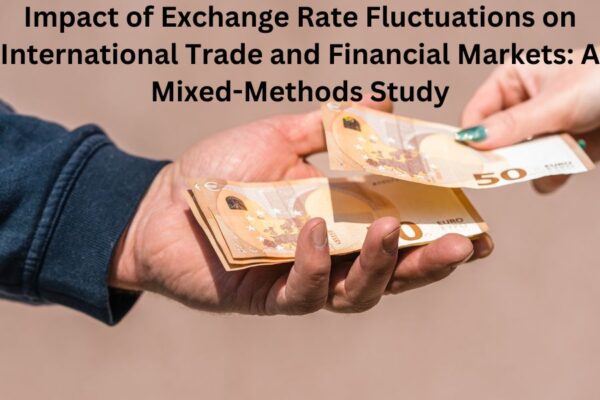Description
Impact of Exchange Rate Fluctuations on International Trade and Financial Markets: A Mixed-Methods Study
Abstract
The influence of exchange rate fluctuations on international trade and finance market is examined. Generally, the changes in demand and supply cause currency fluctuations. With the increase in demand, the currency rises. The downfall happens because of domestic and economic downturns. The currency levels play a major role in the field of investment portfolios, mortgage interest, and perspectives of jobs. Moreover, the foreign exchange market involves selling, buying, and exchange of currencies. It can enhance and enable the conversion of currency for international settlements of trade. Whereas a change in currency value can benefit exports and imports. The competitiveness increases in the market with enhanced trade balance. Central banks are responsible for stabilizing the exchange rates.
Furthermore, the involvement of the government in stabilizing the currency rate depends on the policies. Compared to traditional financial markets the foreign exchange market has more currency fluctuations. The exchange rate has a great influence on financial performance. There is involvement of multiple countries with cross-border operations and consistent earnings. Moreover, it leads to negative effects such as inflation conditions with the reduction in the exchange rate. Multinational corporations face the risk of lower revenues depending on the operations of the currency rate.
Generally, the Forex market is the most prominent in the trading market. The companies recommend engaging in managing the exchange movements and enhancing the operational sector. Additionally, the study suggests that there are consequences and strategies for managing conversion rate volatility. Such type of fluctuations can enhance the operations and opportunities at the global level. Meanwhile, various factors affect foreign conversion rates such as political, and economic stability, interest rate, economic performance, and perceptions. In addition, the international financial markets help in cross-border investments and exchanges. In conclusion, the financial market policy can create opportunities and ensure long-term economic stability.
Read more about the topic
Exploring the Dynamics of Exchange Rates: An Empirical Analysis and Predictive Modelling
View Other Projects on Financial Markets








Reviews
There are no reviews yet.